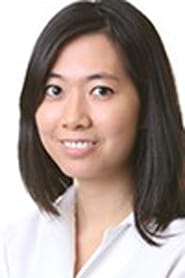Interview with Rose Lee, MD
 What Fellowship Program are you currently enrolled in?
What Fellowship Program are you currently enrolled in?
Beth Israel Deaconess Medical Center/Boston Children's Infectious Disease program.
What sets this Program apart? Why do you enjoy it?
Solid clinical training, dedicated didactic time and multiple opportunities for research, collaboration and exploring different career paths.
Why do you think you were successful in matching in this high-profile Fellowship Program?
Good clinical training with opportunities for residents to develop independent projects and research interests, supportive mentors and recommendation letters.
How did the Med-Peds Program at UH/Case Western Reserve University position you to be a successful candidate for it?
It emphasizes flexibility and adapting between environments and learning how to be successful in different settings. A major advantage I think was also that med-peds residents have to be independent given the natural setup of our rotations and especially during their later years have more flexibility with elective time. I think using this time for research and independent projects versus many of the administrative tasks that seemed to bog down categorical residents allowed for more time to develop independent research agendas and interests.
What are you planning to do after finishing the Fellowship Program?
Ideally, I would like to pursue an academic infectious disease career track.
What would you advise current Med-Peds residents to focus on to maximize their chances of matching at competitive institutions?
Use elective time to develop research interests, talk to mentors and investigate different career paths. I think while exposure to outpatient rotations/specialties is important, in the end it is all too easy to just fill up your "down time" attending busy outpatient clinics and doing work that you may pick up a few new skills from but if you're not doing that specialty is probably not all that useful. Residency moves by fast, and it is important to be equipped with the tools to explore avenues outside of the box. National studies have shown that job dissatisfaction is a growing problem in medicine, and maximizing your elective time to match your career goals is incredibly important.


